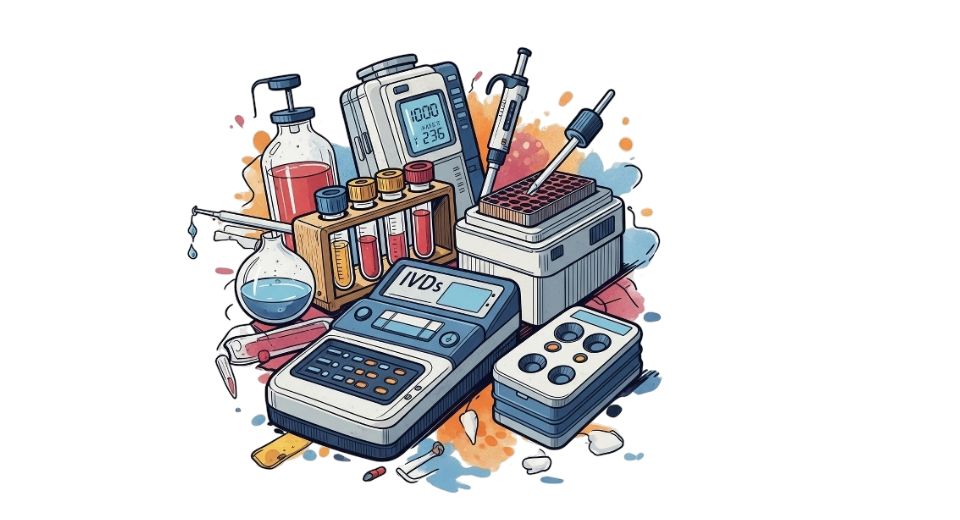
Jul 25, 2025

The just-published report on the Indonesia In Vitro Diagnostics Market by Metastat Insight presents a rich examination of the subtle forces at work within this industry in one of Southeast Asia's most vibrant healthcare markets. Rather than mere compendium of numbers, the report presents a glimpse of how domestic requirements, cultural factors, and health system structures converge to create a distinctly Indonesian model for diagnostics. The research speaks not just to the market's regulatory and structural context but to its emotional and logistical nuances as well, weaving a story of change rather than merely reporting trends. Indonesia offers a unique terrain in which urbanization and sophistication intersect with rural urgency, so the dialogue about diagnostic equipment is particularly complicated.
In-vitro diagnostics, by definition, require an environment in which accessibility, accuracy, and cost are meticulously weighed against one another. This equilibrium proves particularly precarious in Indonesia, as its people are scattered throughout a vast archipelago. The demand for such diagnostic solutions has been evolving within a matrix of healthcare policies, local production planning, and uneven infrastructural capacities. What results is not a monolithic development but a mosaiculture of advancement, with each province and municipality scripting its own chapter in the overall national narrative. The regulatory environment enveloping the Indonesia In Vitro Diagnostics Market has grown much more mature over the last few years. Regulation has changed, and with it, a more defined process for entering and doing business in the market.
However, this evolution has not removed the deeply embedded log-jams of logistics challenges for diagnostic suppliers and service providers. Moving sensitive diagnostic materials across islands and into outlying areas still tests even the strongest supply chains. Adding to this is the necessity of educating end-users clinicians and patients alike on the use and interpretation of diagnostic tests, particularly in populations where healthcare literacy is highly diverse. In contrast to most other regional markets, Indonesia's diagnostic market is closely entwined with cultural attitudes toward illness and wellness. Local attitudes frequently dictate how symptoms are interpreted and if medical diagnostics are sought out at all. This cultural frame can influence demand in ways that may seem unaccountable from a purely data-centric viewpoint.
In-vitro diagnostics, particularly those involving chronic conditions or early detection, are occasionally greeted with skepticism or slow adoption not because of skepticism regarding the science itself, but because of ingrained social norms surrounding healthcare-seeking. The Metastat Insight report addresses this complexity with unusual delicacy, observing the way in which cultural context is as powerful as technological ability. Local producers in the Indonesia In Vitro Diagnostics Market have become more proactive, a manifestation of wider national aspiration for healthcare independence. Indonesians have taken to promoting indigenous production through collaboration, licensing schemes, and policies supportive of indigenous development. Although this transition is in its early days, it indicates a willingness to develop an autonomous diagnostic infrastructure. Local manufacturing not only reduces supply chains but also leaves space for innovation that is specific to local requirements something that international manufacturers might miss out on in favor of generic solutions.
A further area investigated in the Metastat Insight report is the evolution of consumer expectations. Urban populations, in general, are more educated and assertive in their healthcare seeking. This change creates new pressure on diagnostic service providers to deliver not just reliability and accuracy but also convenience, privacy, and speed. In others, it has created hybrid diagnostic models that combine digital interfaces with actual testing, giving consumers more control over how they manage their health. But also with growing sophistication in urban residents is the relative contrast with rural areas, where infrastructural and educational gaps remain a hindrance to similar progress.
Policy-wise, the Indonesia In Vitro Diagnostics Market is often shaped by wider public health initiatives and government agendas. Screening programs, national health insurance schemes, and emergency response plans tend to fuel short-term surges in demand for particular diagnostics. These fleeting spikes, however, can cover over longer-term trends unless viewed through a multifaceted perspective. The report resists the urge to overgeneralize, instead providing case studies and regional analysis that reveal the heterogeneity of market conditions throughout the country. What makes this analysis of the Indonesia In Vitro Diagnostics Market so effective is its ability to reconcile the macro with the micro. It does not lose focus on the large economic and political trends at work but neither does it ignore the specific choices made by clinicians, lab technicians, regulators, and patients.
Both of these players introduce a singular role to the market's trajectory, befitting a mosaic that cannot fairly be reduced to easy conclusions. In doing so, the report serves as both an industry report and a chronicle of culture, showing that diagnostics are not only a clinical tool but also a social one. While reflecting on the results laid out in this detailed study by Metastat Insight, it is evident that the Indonesia In Vitro Diagnostics Market is not characterized by sequential growth or homogenous acceptance. Rather, it is a multidimensional conversation between tradition and modernity, between global systems and local needs. It is a terrain where medical science will need to engage not merely biology but also belief, infrastructure, policy, and geography. The layered approach of the report honours this and provides stakeholders a unique opportunity to address the market on its own terms once region, once patient, and once decision at a time.
Drop us an email at:
Call us on:
+1 214 613 5758
+91 73850 57479